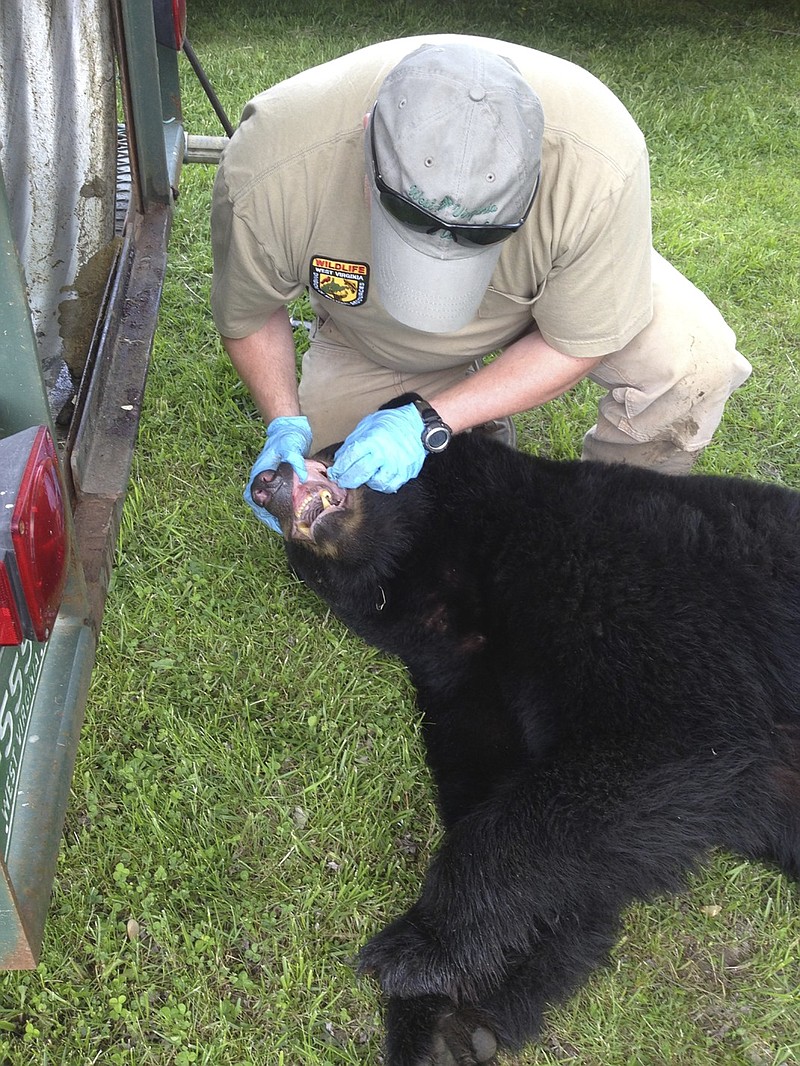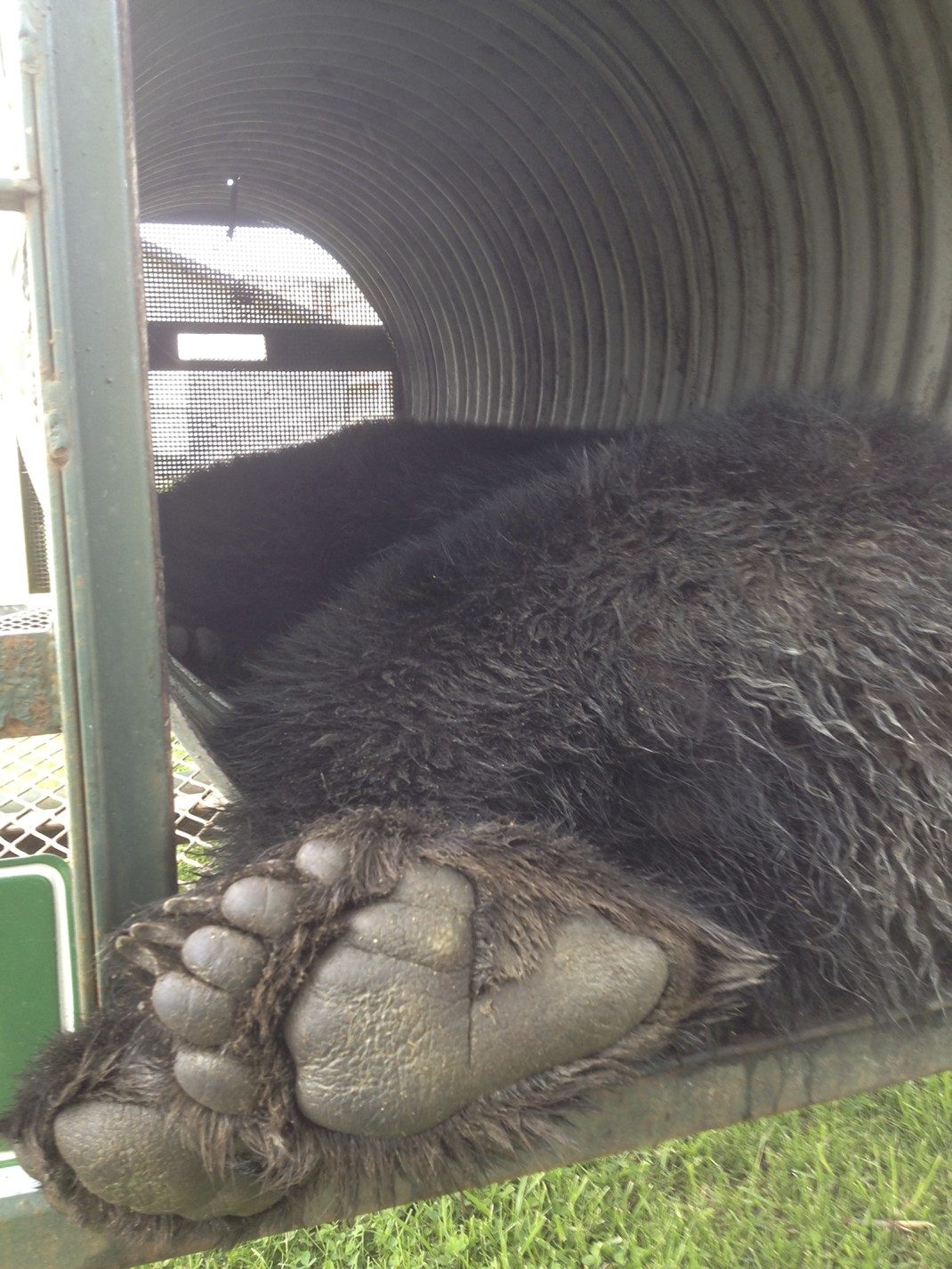"The rule about bears is their unpredictability." - Anonymous
It's been a while since I wrote to you about bears, but they've been on my mind lately.
In the dusty crevices of my mind (believe me, it's a mess in there) bears are a special creature, different from deer, squirrels, turkeys and hoot owls. We are talking about black bears (Ursus americanus) here - I don't have much experience with the brown bears (Ursus arctos) of the western states.
Bears can have a split personality when it comes to dealing with humans. Sometimes they are an interesting woodland creature on funny escapades we like to watch, but they can also be a terrifying predator. Mostly they are occupied with just being a bear, a full-time job for them.
Nothing short of a mountain lion or Tyrannosaurus strolling through town could cause as much excitement as a bear doing the same. You may have noticed we have been seeing a lot of this over the past weeks: bears in town, bears on the interstate, bear in a swimming pool while sipping a margarita with an umbrella in it.
What's up with the bears? So glad you asked.
"Bears leave the den in the spring at a time when natural food sources are at their lowest point of the year. We typically start receiving consistent nuisance bear complaints in April, with the number of complaints increasing steadily throughout the month of May," said Colin Carpenter, wildlife biologist and black bear project leader for the West Virginia Division of Natural Resources.
Colin noted May is generally the month with the most bear complaints and sightings each year, although June sometimes is the "worst" month. As natural food sources like serviceberries, blueberries, raspberries and blackberries start becoming available, nuisance complaints subside.
There are several reasons why bear activity peaks in late May through June.
Yearling bears have been "kicked out" by their mothers and are on their own for the first time. Males have increased their movements because females are beginning to come into heat (peak time for breeding is usually mid-June through mid-July). The summer food sources are not yet ripe, bears have been losing weight since leaving the den and there has been little to feed on other than green vegetation.
So biologist Carpenter is telling us there is a lot going on in the bear world in late spring and early summer. They come out of a long winter's nap and start looking around for breakfast. The cupboard is mostly bare, like when you haven't been to Kroger or Piggly Wiggly for two weeks. Worse yet, imagine trying to wake up after four months of sleep without the help of coffee.
If there are no nuts or berries in the house, what would you do? If you find a nice dumpster or garbage can full of pizza scraps or other goodies, you are going to chow down. The same thing happens when we leave pet food on the back porch. This is when all the fun starts with the bear and human interactions.
Next, the bears have a lot of their own drama going on. The kids are getting kicked out of the house, and these juveniles are wandering all over creation trying to find a place to live. If that was not enough, bears are in their dating and mating season, and just like with humans that tends to be a real mess.
So maybe you can see how there is plenty of opportunity for interaction between bears and people, much of which is not good.
If you are reading this in the newspaper, you stand a good chance of seeing a bear walk through your backyard, because your state seems to have a good population of bears. If the bear you see is just traveling through on a little road trip, wish him well and hope he keeps traveling on. Keep your garbage and pet food out of sight, and he will probably head on down the road.
Maybe next time we can talk about some of the adventures I had with bears when I worked for the DNR. Lots of bears in houses, bears in restaurants, bears killing sheep and bears knocking over bee hives. There is never a dull moment when dealing with bears.
With the berries ripe, you won't see and hear about the bear so much. But don't worry. He will be back next year, and I'm kind of glad. I like to see him around.
Even if he is a pain in the butt sometimes.
"The Trail Less Traveled" is written by Larry Case, who lives in Fayette County, W.Va., has been a devoted outdoorsman all of his life and is a contributing columnist for The Times Free Press. You can write to him at larryocase3@gmail.com.

